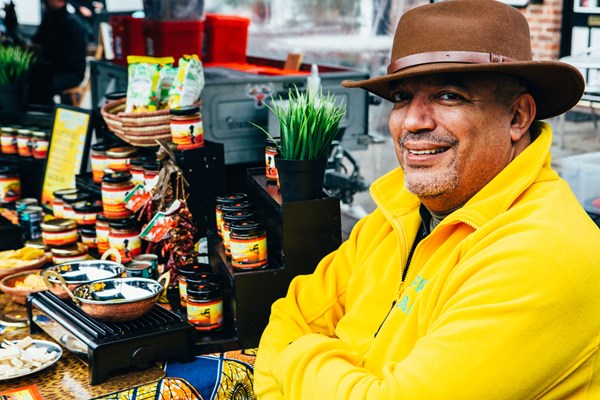Food & Drink Sector Support At GC Business Growth Hub
20 February 2023
Recipe4Success is our comprehensive programme of support for Greater Manchester-based SME food and drink businesses looking to take their business to the next level.
We caught up with the programme lead, Marc Appleton, to find out more about Recipe4Success.
Tell me about your background. How did you get to be here?
I worked in the food retail sector, but then I did consultancy just to keep things ticking over with some really interesting businesses that rely on creativity in their supply chains.
So it's for start-ups in the food and drink space. We target businesses that are under three years old. It could be that they've got an idea of something they want to do. Or they've discovered they make amazing marinara sauce and want to sell it. They might know quite a lot, or they might know nothing at all. But the beauty of bringing together a cohort of businesses is that even if you're in the same kind of exact category, you know, if it's a gin company, for instance, there's enough of it to go around. Some people are further along the journey, while others are newer to it. Everybody knows somebody that can help somebody else. So it's a pretty social sector, to be honest, with most people willing to give each other a leg up, to help each other out.
But some businesses are up and running and need help getting to the next level?
Yes, that's right. There might be a business that's been going for three years that is looking to scale up and go to the next stage. So they've been trading really well in farm shops, delis and garden centres or have contracts with local restaurants selling their produce to them. And now, they might be looking at retailers on a slightly larger scale. Someone like Booths, with 28 sites across the North, central distribution in Preston, one drop, if you can prove that your products are good enough and that there's a market for it, we try and get people retail ready, so that they can actually sell their goods into those retailers.
Is it a big culture shift to work with supermarkets?
There's no point in putting a business making chilli sauce in their kitchen in front of Morrison's to supply 300 stores or more. But we might help them get ready to start doing those farm shops, makers markets, develop the product, get the recipe right. Ask them if they have all the legalities in place on food safety, labelling, branding all of these sorts of things. How they take customer feedback and do market research, doing the stalls for a little bit. Show them how that can develop further and build an E-commerce element to the business or going into the different retailers.
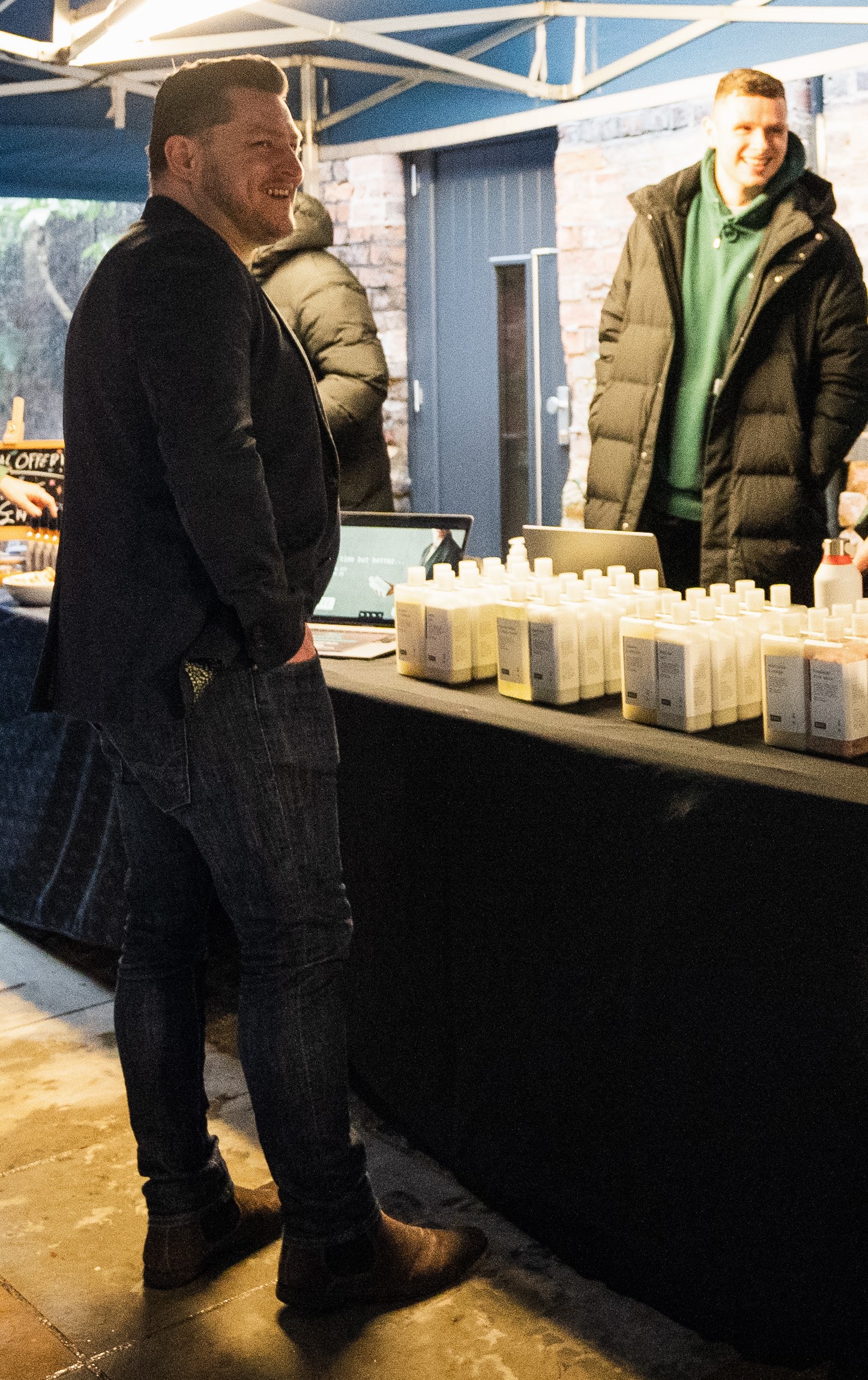
Marc Appleton
So having a great product is just the start really?
Yes, so true! It's more complex than making a product and knowing that it's good because it tastes alright. There's a lot of statutory stuff you have to have in place. For anybody producing food for consumption by the public, you have to register as a food business at a premise, which may be the kitchen of your house, but that's fine. But you still have to register with your local authority, meaning they have to inspect you.
What's the most essential and common advice you find you give new businesses?
Register as a food business. It takes little time, five minutes tops. The second thing that I'm hot on is around food safety policies. A little hot sauce maker is not going to go and get BRC accreditation, but they have to have something in place that is correct for the size of their business. But then, if you're looking to sell into Booths or Selfridges, you need to comply with Hazard Analysis and Critical Control Points. It's about mitigating risks. These are the steps we will undertake to ensure that it keeps the food safe. Then, we have to prove that we are actually following that process, putting checklists in place and taking temperature checks of the food to ensure that it's cooked. And we'd have that in policy, so we know we've followed it, so it protects the business and the public.
One of the sessions that we do is on keeping it legal. So that's regulations in the food and drink industry where we touch on the safety, the allergens, the labelling requirements, that sort of thing.
Do you help businesses develop their strategy?
Yes, we look at commercial and legal issues and spend a lot of time looking at future trends. What's going on in the industry, whether that's just in the UK or, in fact, globally as well, because we always have an eye on exports and things like that. Looking at what people are talking about, whether it's just on social media, aggregating all of that information together so they've got some key trends they may want to incorporate into their strategy.
We will be looking at trade press, looking at what's out there, social media, and Mintel data. There's tons of stuff that we can draw on.
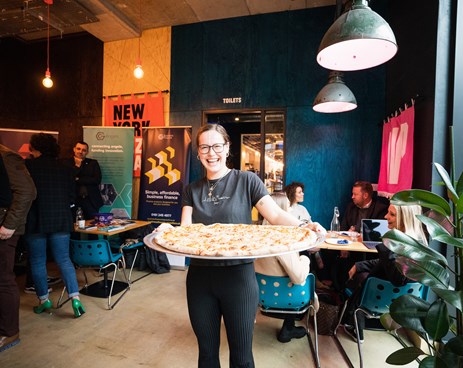
What business tools do you use?
We use a tool from Ernst and Young called the seven drivers of growth. In our practical session, we focus on customers, because it's the one that's easy, easiest for most businesses to understand. And then, for various sub-drivers, you grade yourself where you are on a slider and where you want to be in 12 months. And then what that does is it pulls through actions, actual practical ideas of things that you can do to get yourself from where you are to where you want to go from other businesses that EY have worked with before, whether that's actually massive multinationals or smaller companies. But a lot of the learnings are very similar down to a micro level.
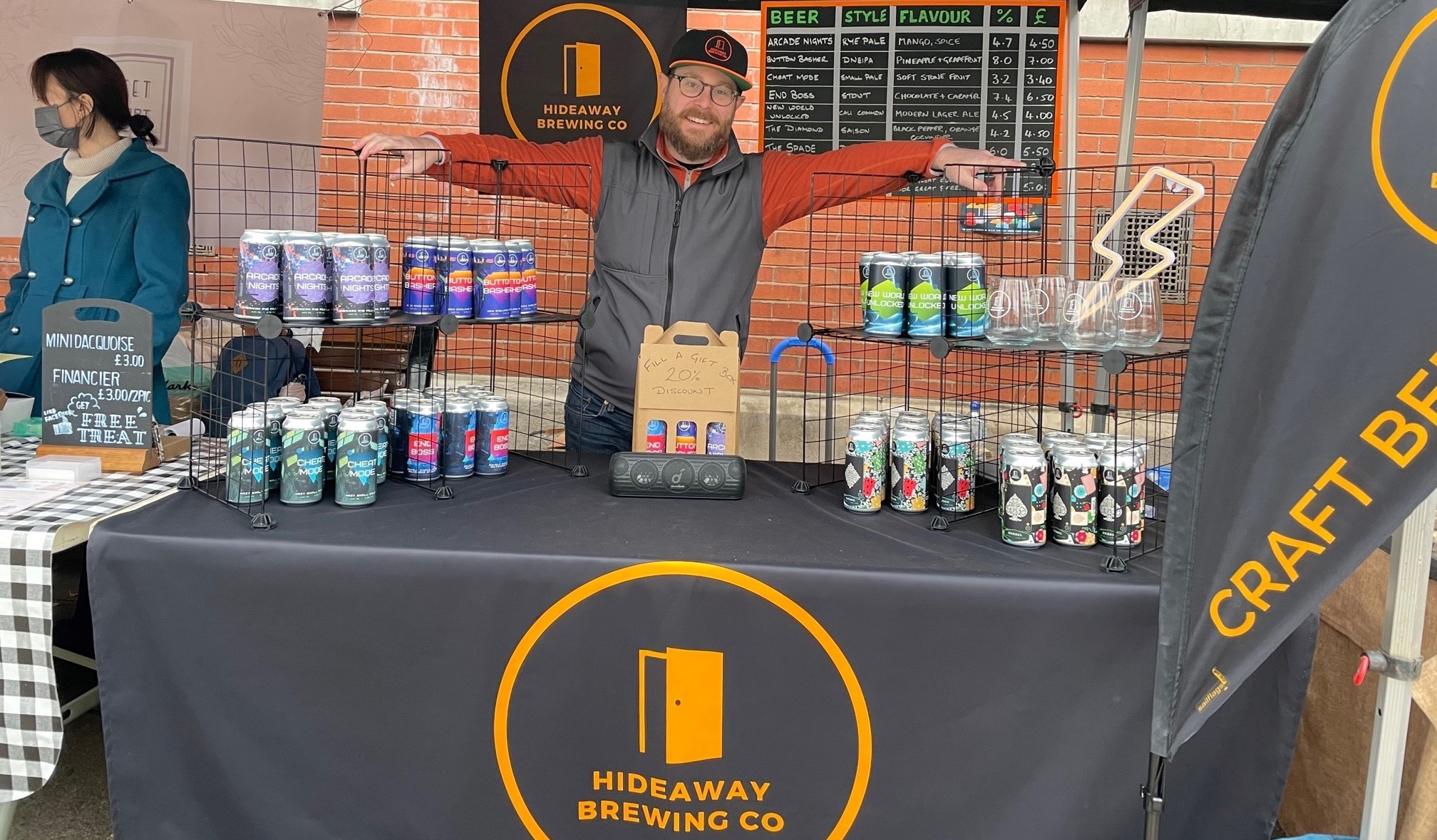
How important is brand in the food and drink sector?
We do a session on branding, which is a half-day workshop, and it's specifically tailored towards the food and drink industry. So it's a little bit different than some of these other accelerators that you might get as it's dead specific to people in that industry. It covers the importance of storytelling in brand and lots of practical tips that they can put into practice. After the branding session, we do an entire session on digital marketing; social media, SEO, websites, pay-per-click, and how they can be leveraged. Then we have a session specifically on photography where we say, right, this is how you dress a shot, using your phone, this is how you edit it, then a practical session with everybody getting their phones out. And yes, dressing their stuff up and using props and things like that to take as close to professional shots as possible.
Everything has to be presented right in the Instagram age, right?
What's true for the hospitality restaurant world is true for actual products too. The best ones out there have got to think of that shelf appeal. And you know, with brand building, it's about getting your brand out there. There are 12 points of contact before people decide that they're going to buy. They're not just going to pick it up when they see it on a shelf, necessarily, unless it's really next level. But it might be that somebody mentioned it to them, and they might see it in a magazine or see the pictures on Instagram.
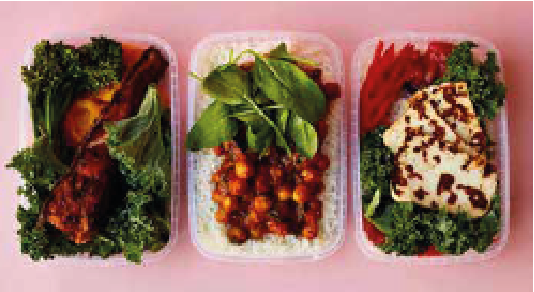
What other benefits do businesses get from coming on the programme?
They learn from each other. What about markets? How did they get on them? Or is that down to people's individual local contacts? They're a good peer group who can help each other test drive the products. When they've, you know, they've got the packaging looking right, when they've got their sales pack arrived. Yeah, get it out there in front of people. See how it's received. The buyers want to know about that as well. How have you sold so far if you've been going around the markets selling every Saturday and Sunday for the last 12 months?
How does it work with the buyers when they get involved in Recipe4Success?
Previously, we dealt with one buyer at a time. But people are in front of a supermarket buyer, and they're getting some good advice to come back to give the buyer an example of how that works. I didn't think it was helpful to have somebody dead small going in front of, say, Tesco or Morrison's, for example. But providing an array of different people means at least they've got somebody to talk to that they can aspire to work with. With our help and preparation, they may be ready within six months rather than six years to get in front of that sort of person. We may have three or four people in the next iteration of this on a panel. Businesses will come and pitch their stuff, and then the buyers will question them effectively to find out more.
